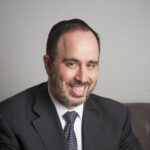Growth through Marriage
An Introduction to the Shalom Bayis Series

By Dr. Ely Weinschneider
In every field or profession there are some that are exceptionally bad, some average, and some exceptionally good- incredible, amazing, off the charts. As an example, let’s take a look at plumbers. Most plumbers are pretty good. They know what they are doing- they know how to take care of all of the run-off the-mill problems that come up and know how to address them with a fairly high rate of success. I would say that’s true for about 80% of plumbers.
There is a small number of plumbers who somehow manage to make the smallest, simplest problems into catastrophes. A small leak turns into a mabul, a clogged pipe turns into a real churban. You can’t help but wonder how they ever became licensed in their field, and it appears to be a sheer miracle that they didn’t somehow drown in a toilet they were fixing! I would say that this is true for at most 10% of plumbers.
Some plumbers are geniuses, simply brilliant, in their field. They understand the science and mechanics of all aspects of plumbing, how and why a problem came to be, and address it at a systemic level, not just as a symptom that needs to be remedied without much thought. They understand the root cause of problems that may arise, make sure to think things through, and then create and build systems that will work as smoothly as possible, so that with proper maintenance problems seldom occur. I would say that this is true for at most 10% of plumbers.
How did those exceptional plumbers become exceptional? It is a strong mix of natural ability, interest, curiosity, passion for learning and understanding, attentiveness and practice.
For better or for worse, the same is true for marriages.
There are a minority of marriages that are horrific beyond belief, a vast majority of marriages that are fair to pretty good, and a very small minority of marriages that are off the charts, incredible and amazing.
There is a book that came out several years ago by Malcom Gladwell called Outliers. As a quick summary, outliers (exceptions, yotze-min-haklal) are generally ignored in scientific study because they are considered an anomaly, an exception to the rule. The idea behind the book is to actually stop and study the amazing outliers, the people that seem to be exceptional in their field or area, instead of ignoring them, and saying “well, that person is exceptional. I can’t relate to that.” Why not study excellence, and then strive to be excellent yourself?
The Mishna (uktzin 3.12) states: “lo matzah Hashem kli machzik bracha lyisroel ela hashalom.” There is no greater vessel, incubator, for blessing other than shalom. As a Clinical Psychologist with over 20 years of experience I can attest that it is only in homes where the shalom bayis is amazing, exceptional, off the charts- only in these homes does everyone thrive and blossom and grow beyond anything one could possibly envision. The more energy, focus, and interest you put into marriage, the more bracha, nachas, simchas hachayim, and menuchas hanefesh you will experience.
In this series of shalom bayis Q&A’s I will attempt to provide Torah-based, practical solutions to challenges that may arise to help us all improve and strengthen our binyan adei ad.

Dr. Weinschneider is a Clinical Psychologist in private practice in Lakewood, NJ, and the Founder of The PINNY Institute. He can be contacted at drely@drelyweinschneider.com for private appointments, speaking engagements or workshops.
